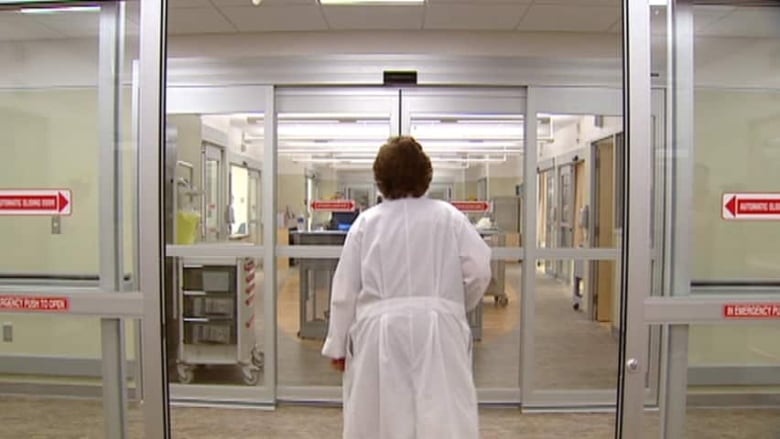Capital Health threatens legal action if nurses resign
Nurses with NSGEU Local 97 have voted to resign en masse if essential services law is passed

The chief executive of the province's largest health authority is warning that individual nurses could be disciplined if they follow through with threats of mass resignations.
Chris Power, the CEO of the Capital District Health Authority, said in a letter to the Nova Scotia Government and General Employees Union that the health authority "will take whatever legal action it feels appropriate to counteract such dangerous, unlawful behaviour."
The letter, dated March 20, was obtained by CBC News on Thursday.
While the nurses' current collective agreement does allow for a three-day resignation, Power said if two weeks notice is not given, the Capital District Health Authority is not obliged to allow employees to withdraw that resignation.
The Capital District Health Authority is locked in contract negotiations with 2,300 registered nurses, represented by the NSGEU.
At a union meeting on Wednesday night, nurses in Local 97 voted overwhelmingly to support a mass resignation if the provincial government tries to bring in essential services legislation that would stall any walkout.
Health authority condemns 'reckless behaviour'
If there are mass resignations, Power said the authority can apply for a cease and desist order, grieve under the collective agreement, discipline nurses and complain to the College of Registered Nurses of Nova Scotia.
She urged the union to change its mind.
"We expect that the NSGEU will, given the potentially catastrophic consequences to public safety by such dangerous, unlawful job action, make an unequivocal public statement to its members, counselling them against such reckless behaviour and making it clear that the union will not provide any support or assistance to members who take such action," Power wrote.
Earlier on Thursday, Premier Stephen McNeil said the College of Registered Nurses of Nova Scotia should rule on whether a mass resignation constitutes a breach of their Code of Ethics.
He ridiculed the resignation threat after emerging from the province's weekly cabinet meeting on Thursday.
"I don't think anyone no matter how far you may think, right or left politically or down the centre would think that that should be used as a tool in collective bargaining, that we should be resigning en masse," he told reporters.
"Any organization that has been spending the kind of money that this organization has been spending talking about patient safety, I find it hard to believe that they would walk away and leave vulnerable Nova Scotians at risk."
The college said in a statement it won't make rulings on situations like mass resignations before they happen.
Nurses against essential services legislation
The registered nurses at Capital Health are trying to prevent what happened to Northwood home support workers earlier this month when they tried to strike.
More than 400 Northwood workers were forced back to work after the government passed the Essential Home-support Services Act.
Nurses are now gearing up to battle if similar legislation is introduced targeting them. Kerri Webster-McIsaac said she supports the move for nurses to resign should the legislation be passed.
"It's something we feel we're forced to do. Patient safety is at the core of what we do. It's our livelihood, it's our licence, it's what we believe in, it's why we became a nurse," she said.
"If that's what it takes, that's what we'll do."
Contract talks between the two parties broke off Monday over the issue of nurse-to-patient ratios, something the union has said would improve patient safety.
Capital Health has said there is no evidence that shows mandated registered nurse-to-patient ratios guarantee improved patient safety.
In a strike vote held in February, 90 per cent of nurses who cast ballots were in favour of walking off the job to back their contract demands.
Lawyer Bruce Outhouse has been appointed to mediate the contract talks between the two sides. He's expected to bring the two sides together on Friday at the Holiday Inn in Dartmouth.
With files from the CBC's Paul Withers












_(720p).jpg)


 OFFICIAL HD MUSIC VIDEO.jpg)
.jpg)



























































































